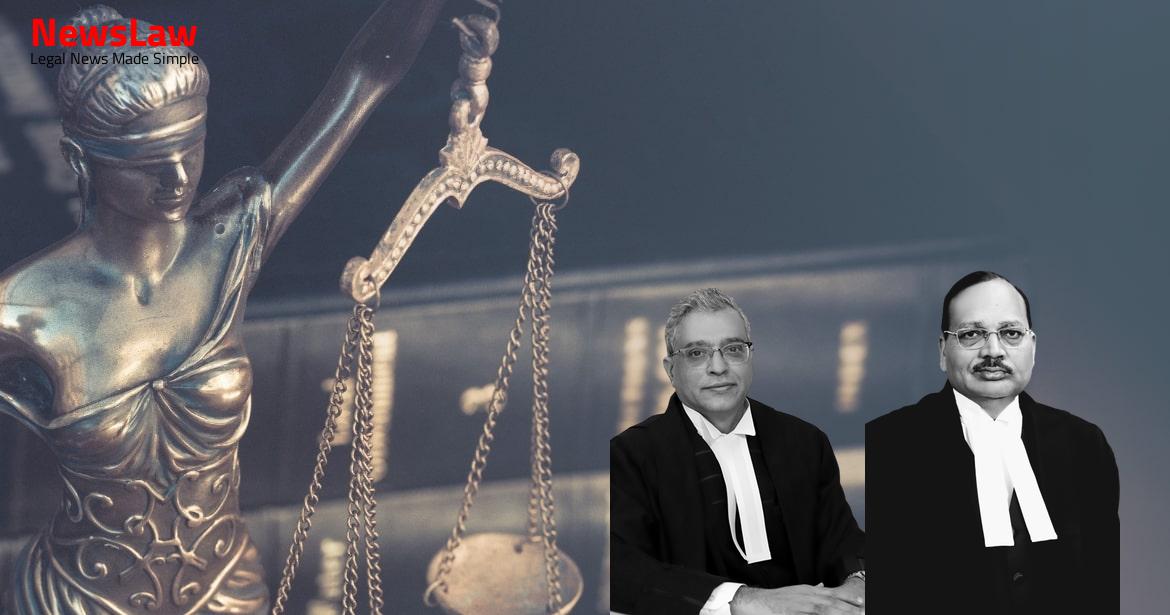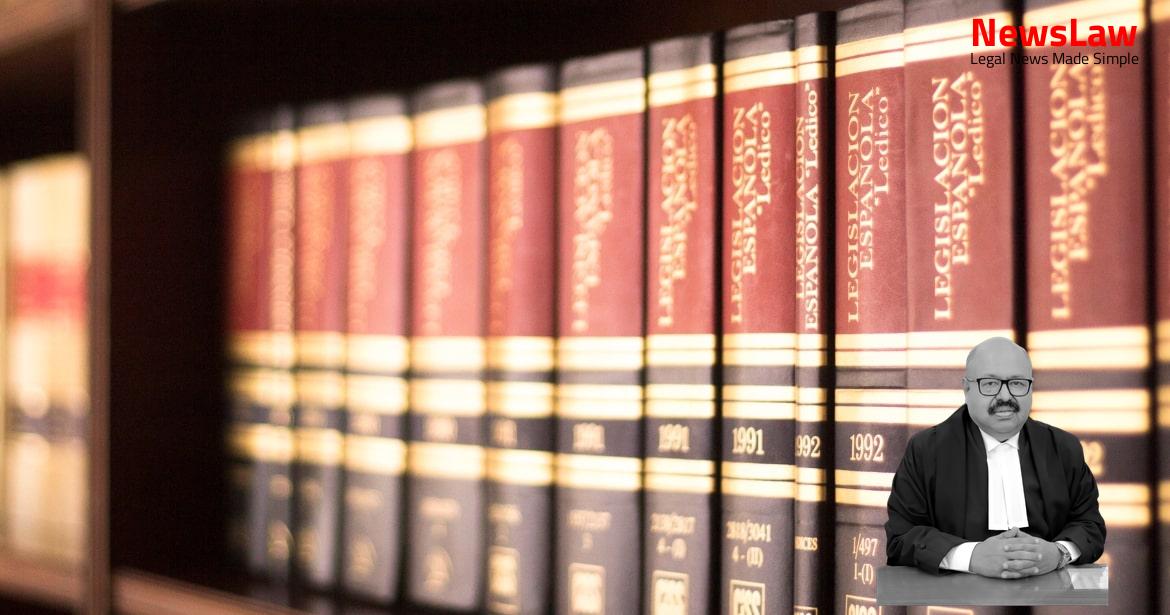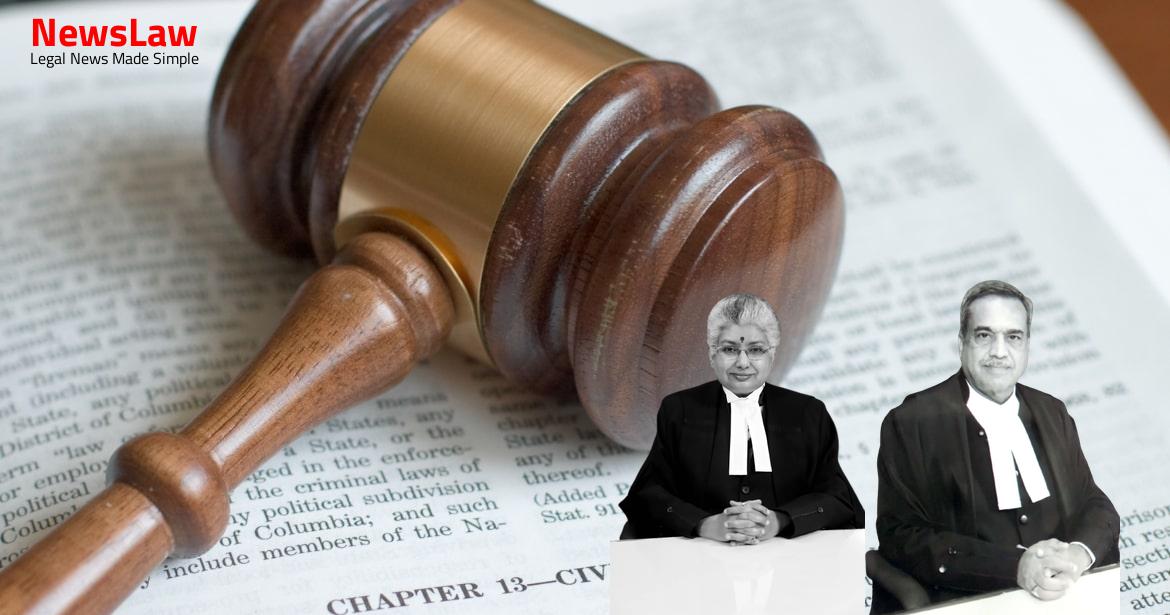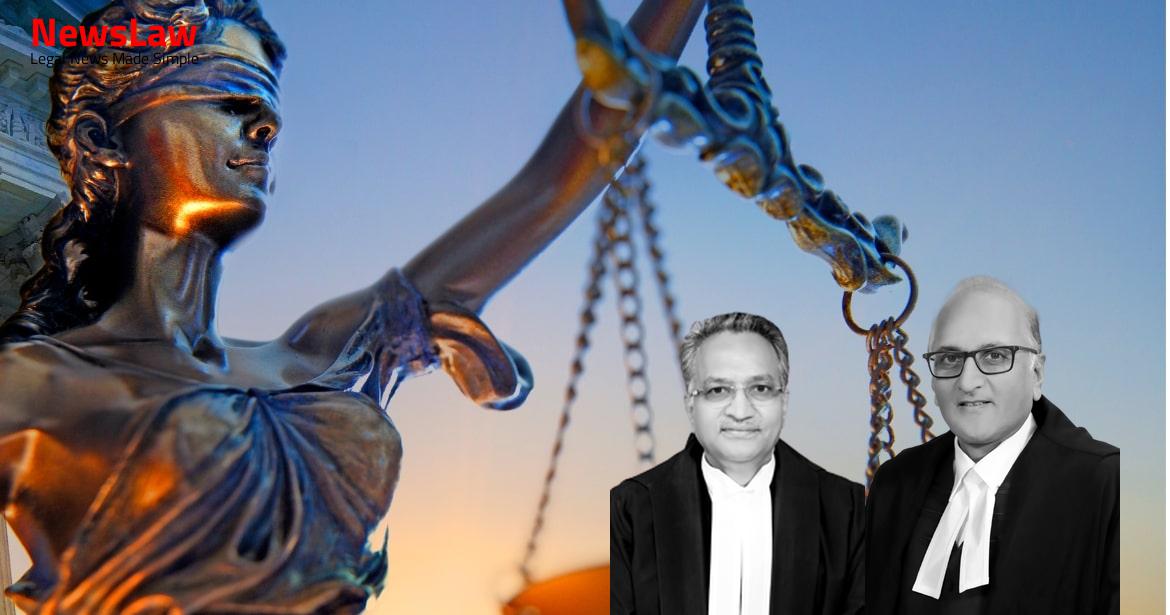A recent legal case delved into the complexities of medical negligence in a surgical setting. The court’s legal analysis highlighted crucial aspects of the case, emphasizing the need for diligence and due care in such procedures. Stay tuned to discover the insights revealed through this ruling.
Facts
- The CT scan performed on 31.07.2004 showed pneumoperitoneum, indicating free air in the abdomen.
- No negligence found on the part of Respondents 1 and 2.
- Appellant 1, a retired Semi-Government employee, filed a complaint for monetary compensation.
- CT scan report showed normal intestines.
- Patient went into multi-organ failure.
- SCDRC found Respondents 1 and 2 negligent and exonerated Respondents 3 and 4.
- Significant air presence in abdomen after laparoscopic surgery indicated intestinal injury.
- Respondent 3 delayed re-exploration surgery despite CT scan report.
- Patient referred to Respondents 3 and 4 instead of a local hospital.
- Death resulted from intra-operative injuries caused by Respondent 1 during laparoscopic cholecystectomy.
- Patient’s deteriorating condition after surgery.
- Apportioned compensation to be paid by Respondents 1 and 2.
- Patient’s death due to cardiac arrest.
- Evidence, medical records, and MCI findings showed medical negligence by Respondents 1 and 2.
- Residual gas absorption within 24 hours normal after surgery.
- NCDRC decision made without considering MCI findings.
- Dr. Dharamvira Gandhi confirmed patient referral by Respondent 1.
- Complainant requested further investigations and opinions, denied by Respondent 1.
- Patient transferred to Respondent 4 hospital where surgical intervention was not advised immediately.
- Complainant appealed to NCDRC following patient’s death.
- NCDRC held that Respondents 3 and 4 acted with due care
- Impugned decision on 05.06.2020 allowed the appeal of Respondents 1 and 2
- SCDRC’s order stating negligence was not proved was set aside
Also Read: Clarification on Advertisement for Lecturer Post in Home Science
Arguments
- The patient suffered two iatrogenic injuries during her first surgery – one to the colon and the other to the bile duct.
- Mr. Raj Kiran Talwar, learned advocate for the Appellants, relied on a judgment of the Court in Maharaja Agrasen Hospital and Ors. v. Master Rishabh Sharma and Ors.
- He made submissions in support of the Appellants.
- The only allegation is of the delay in diagnosis of colonic perforation and corrective surgery.
- The presence of a biliary leak does not signify injury of a bile duct as it can occur from different sources.
- The surgery was performed diligently and with due care.
- Contrary to the submissions made by the counsel, the findings of MCI, SCDRC and the NCDRC did not support the claim of diligence and due care in the surgery.
Also Read: Judicial Review of Administrative Actions in Educational Matters
Analysis
- Dr. Gurmit Singh ignored warning signs such as lack of patient recovery, increasing deterioration, and indication of complications post-operation.
- There was a delay in diagnosing bowel perforation due to Dr. Gurmit Singh’s failure, leading to avoidable deterioration of the patient.
- Minor bile leak during surgery was accepted by Dr. Gurmit Singh, but the availability of necessary facilities in the local city needs verification.
- The MCI report pointed out a significant delay in diagnosing and intervening in bowel perforation, contributing to an unfavorable outcome.
- The Ethics Committee found Dr. Gurmit Singh negligent in treating the patient and failing to suspect complications despite warning signs.
- The NCDRC was criticized for not referring to the MCI report and for focusing on general legal principles rather than the specific evidence in the case.
- The appeal filed by the complainants is allowed.
- The findings of the State Commission, National Commission, and MCI did not find Respondents 3 and 4 negligent, and this decision is agreed upon.
- The conclusion and directions in this case are confined to Respondents 1 and 2.
- The decision of the NCDRC is to be set aside.
- The complainants have established a case of medical negligence against Respondents 1 and 2 and are entitled to seek compensation for deficiency of service.
Also Read: Scope of Rule-Making Power in Disciplinary Proceedings
Decision
- The amount of Rs. 62,85,160 claimed by the complainants includes various expenses such as medical treatments, loss of income, damages for trauma, and other costs.
- Respondents 1 and 2 are directed to pay a total amount of Rs. 25,00,000 to the complainants as compensation, with an interest of 6% per annum from the date of the State Consumer Disputes Redressal Commission’s order.
- Failure to deposit the amount within 6 months will result in an interest of 9% per annum.
- Respondents 1 and 2 can adjust any amount already paid or deposited in favor of the complainants during the proceedings.
- The parties involved will bear their own costs for the proceedings.
- The appeal filed by the complainants is allowed, setting aside the judgment of the National Consumer Disputes Redressal Commission in Appeal No 108/2008 and Appeal No 120/2008.
Case Title: HARNEK SINGH Vs. GURMIT SINGH (2022 INSC 583)
Case Number: C.A. No.-004126-004127 / 2022



